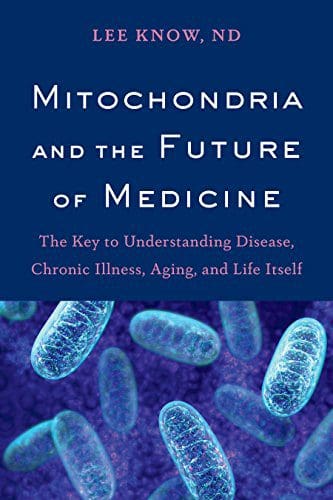Definition
Mitochondria are organelles found in the cells of most eukaryotic organisms, often referred to as the ‘powerhouses of the cell’. They are responsible for producing adenosine triphosphate (ATP), the main energy currency of the cell.
Expanded Explanation
They are unique organelles in that they possess their own DNA, separate from the nuclear DNA of the cell. ndeed, mitochondria regulate cell cycles, growth, and calcium balance, and initiate cell death under harmful stimuli. Thus, they’re vital for cellular health, energy, and research focus.
Importance
Mitochondria, vital for cellular function, actively engage in energy production, cell signaling, and differentiation. However, their malfunction can trigger diseases like neurodegenerative disorders, cardiac dysfunction, diabetes, and cancer.
Mitochondria stand at the crossroads of cellular biology, biochemistry, and medicine, providing key insights into metabolic health, ageing, and disease prevention.
- Example 1: In fitness and nutrition, understanding the role of mitochondria can be key to optimizing energy utilization and enhancing athletic performance.
- Example 2: In the medical field, mitochondrial diseases are a diverse group of disorders caused by dysfunctional mitochondria.
Understanding Mitochondria
A common misunderstanding is that mitochondria only produce energy. While this is their primary function, they are also involved in other crucial cellular processes, including calcium homeostasis, apoptosis, and the generation of reactive oxygen species.
Related Glossary Terms
- ATP (adenosine triphosphate): This molecule, produced by the mitochondria, provides energy for many biochemical reactions in the cell.
- Cellular Respiration: This is the process by which cells obtain energy from glucose, and mitochondria play a central role in this process.
Visual and Reading Aids
External Resources for Further Reading
- Mitochondria – Molecular Biology of the Cell – NCBI Bookshelf
- Mitochondria and chloroplasts – Khan Academy
Related Articles From Sunnydaysgo.com
- Unlock the Power of Mitochondria: 10 Ways They Revolutionize Medicine: Explore the mighty mitochondria’s potential to reshape medical science in 10 groundbreaking ways, from energy production to anti-ageing research and beyond.
- Exploring Mitochondria Eve: The Astonishing Link to Our Ancient Roots: This article delves into the fascinating concept of Mitochondrial Eve, the common ancestor of all living humans, shedding light on our interconnectedness and shared genetic heritage.
This entry provides a comprehensive overview of mitochondria, their function in the cell, and their importance in health and disease. Understanding mitochondria can provide valuable insights into energy metabolism, athletic performance, and disease prevention.

